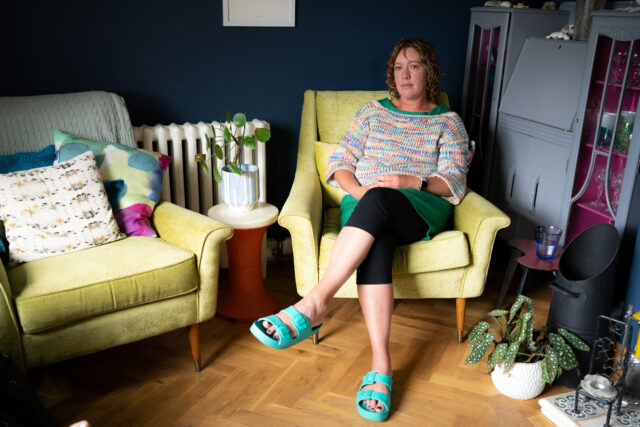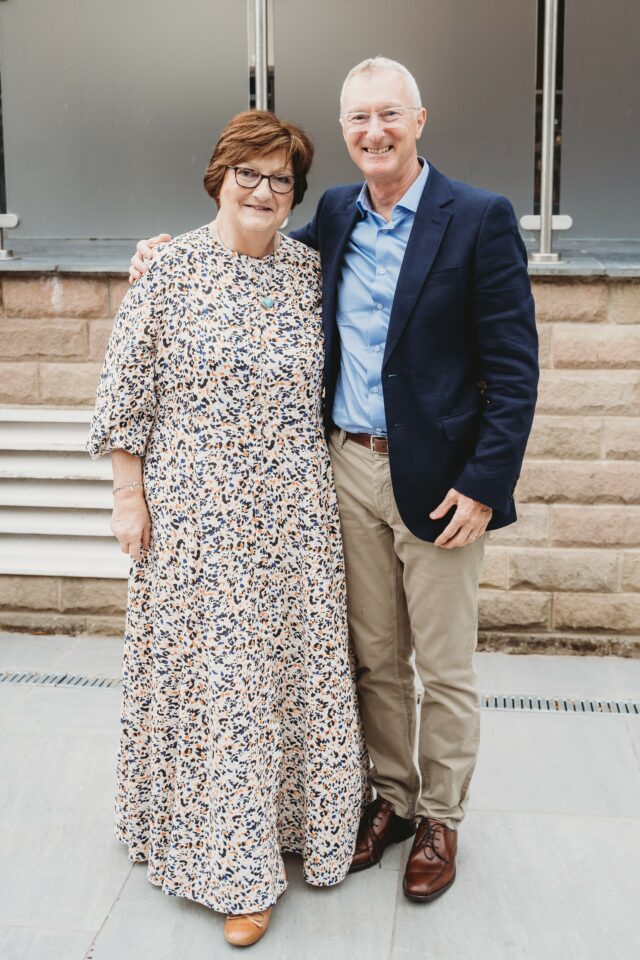Voices from the UK's pulmonary hypertension community
Linda Donn has had pulmonary atresia and pulmonary hypertension all her life.
“The pandemic has been pretty much a nightmare. When it all started, I was feeling well, I was active, and I had been walking two or three miles every day. I went into the pandemic thinking ‘three months on my own won’t be too bad’.
But I spent two years gradually deconditioning, getting more breathless, feeling more isolated, and eventually very lonely and depressed.
I live with my husband, but he works all day in the home office. He peaks his nose out around lunchtime and then goes straight back in.
At first, friends were very good at phoning, but life takes over and people just forget. Days and days went by when I would speak to nobody.
I felt like I was under house arrest; I may as well have had a tag around my ankle.
I had to give up work a year ago due to my health conditions, and I’ve got a tremor so I can’t do all the things I used to do like knitting and tapestries, which would have been ideal during the lockdowns.
So I just watched television, I read, and I kept up with the news until it was distressing me too much. Apart from Captain Tom, it was tragedy after tragedy.
I have to say, I was probably in a position [back then] where I wanted to die. I couldn’t see the point of carrying on with life anymore. I challenged my husband a couple of times about getting up in the morning. I remember saying ‘give me one good reason to get out of bed.’
My breathing and my chest were getting worse, and it took two years to get it all sorted. What was the NHS doing for two years? I know there was a pandemic, but not being able to breathe is fairly major.
The breathing difficulties made me even more worried about catching covid and the fear just grew and grew. Even when shielding was paused in the summer of 2020, I went out very rarely; mainly just for walks at the weekend.
The loneliness just grew and grew during the week, and it felt like there was no-one there to help me.
I was trying to get back into things and trying to do things again but with my deconditioning, my weakened strength, and my inability to be active, I found that there was very little I could get involved in.
I was so scared of going out and I was too scared to go to a hospital. I was called for routine breast cancer screening and cervical cancer screening, but I didn’t go to either.
The more scared they [the government and media] told us to be, the more scared I became, until the real danger out there was not as bad as my perception of it.
I still won’t go out in crowds, and I’ve turned down invitations to weddings and other celebrations. All the things that used to make up my social life don’t exist anymore. They have gone and I feel like my life has changed completely.
My friends are very understanding but I feel like everyone else has moved on and I’m still sitting at home really scared.
Disabled people need to be put first but it’s survival of the fittest in this world; it always has been and it’s not going to change. How can it? The world has always been for the ‘normal’.
I feel like I have been more or less ignored by the NHS through the pandemic. I was left lonely, not able to do very much, very weak, very deconditioned, and very tired.
I lost a lot of hope, but I have recently started going to my local hospice a few times a week for outpatient sessions and that has made me much happier.
It’s getting me out of the house and I’m mixing with people who are in a similar position to me, so I don’t feel like I have to explain myself.
I’m able to take part in exercise classes and have physiotherapy and counselling, and it is company. Getting out of the house in this way has really improved things for me.
I also found that being able to compare myself to other terminally sick people, as opposed to ‘normal’ people, has made an enormous difference to my self-esteem.
I’m still not very independent in an ‘ordinary’ world, but compared to some of the other people, I’m not doing too badly. It has given me a boost and I’m getting fitter and stronger now in a safe space.
As for going out and trying to relight my social life though, I don’t even know where to start. There is still a danger out there and I’m still scared.”
~Linda told her story to the PHA UK in the summer of 2022~

KatieLife is short, and that is exactly what the last couple of years have shown us
SarahThe lack of control is probably what I struggled with most
MarkI wasn’t willing to go back to work and put her in danger

JulieEvery corner I turned during the pandemic was scary, but my specialist centre gave me hope